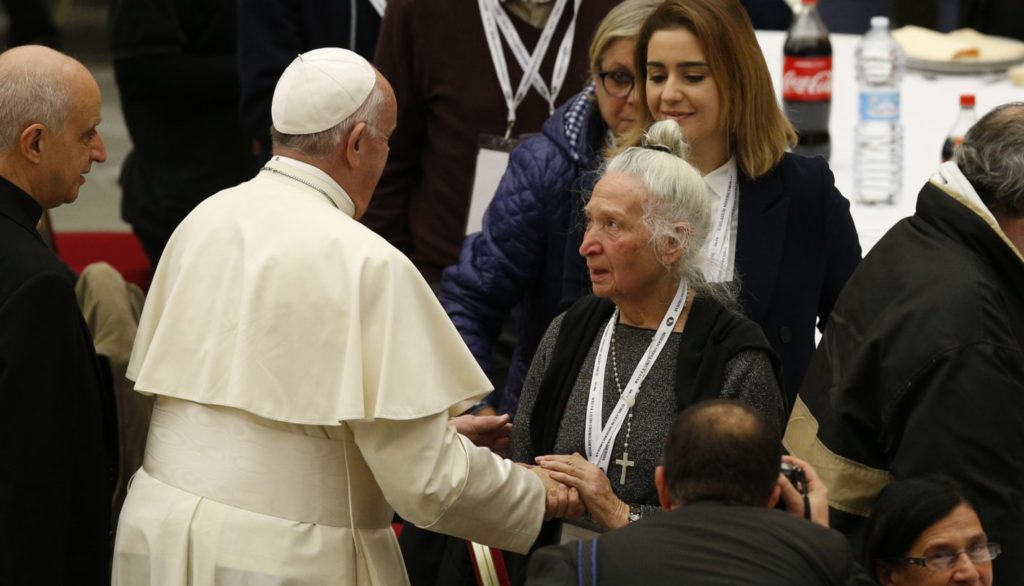"The poor you have with you always", Jesus said in Bethany in the house of the "leper". But this should not mean an adaptation to the situation but the awareness that we are called in the first person to live this reality from a fundamentally evangelical perspective.
Pope Francis explains it well in the Message prepared for the Fifth World Day of the Poor, to be celebrated throughout the Church on November 14, 2021, reflecting precisely on these words of Jesus.
Five years after its institution - which took place, as will be recalled, at the end of the Jubilee of Mercy - the Holy Father maintains that this appointment must take root "more and more in our local Churches", opening themselves to a process of evangelization "which in the first instance goes out to meet the poor, wherever they are".
In fact, we must not wait for them to knock at our door, but reach out to them "in their homes, in hospitals and nursing homes, in the streets and in the dark corners where they sometimes hide, in centers of welcome and hospitality...", managing first of all to "really recognize them", and also making them "part of our life and instruments of salvation".
Sacrament of Christ
We must become aware, in fact, Pope Francis explains in the Message, that "the poor of every condition and of every latitude evangelize us", because they allow us to recognize, through the multiple facets of their condition and their lives, "the most genuine features of the Father's face".
Aspects that the Pontiff had already addressed at the beginning of his pontificate in his Encyclical Evangelii gaudium, when he invited not to fall into an excess of activism towards the needy, but to show true attention and concern for the person of the poor and their welfare.
Jesus himself had not only been on the side of the poor, but had shared with them the same fate. In other words, they are brothers and sisters "with whom to share suffering" but also to whom discomfort and marginalization must be alleviated, restoring dignity and ensuring the necessary social inclusion. Pope Francis in this reflection calls them not by chance "sacrament of Christ", because they represent his person and refer to him.
A true conversion
However, this reflection and this dynamism would be in vain without a true conversion, which "consists, first of all, in opening our hearts to recognize the multiple expressions of poverty", and then living coherently "with the faith we profess". A change of mentality is necessary, which must go in the direction of sharing and participation, and therefore of the desire to free oneself personally from every restriction - also material - "that prevents us from attaining true happiness and beatitude".
The Holy Father is categorical about this: "If we do not choose to become poor in ephemeral riches, worldly power and vainglory, we will never be able to give our lives for love; we will live a fragmentary existence, full of good intentions, but ineffective in transforming the world".
It is also necessary to confront the "new forms of poverty" that arise, for example, from a misuse of the market and of finance, with professionals "lacking in humanitarian sentiment and social responsibility"; from the pandemic that has forced many into unemployment; but also from the more insidious indifference generated by an individualistic lifestyle.
Development processes
The answer may be to initiate "development processes in which the capabilities of all are valued", in reciprocity, solidarity and sharing.
In this, governments and world institutions cannot remain on the sidelines, called to a "creative planning, which allows to increase the effective freedom to achieve the existence with the capabilities of each person". Because if the poor are put on the sidelines, as if they were responsible for their condition, "the very concept of democracy is put in crisis and any social policy becomes a failure".
Read in this perspective, therefore, the famous phrase of Jesus "You have the poor with you always" (Mk 14:7) acquires the meaning of a true opportunity offered to all to finally do good to humanity.





 50 years of Sant'Egidio: "friends of God, of the poor and of peace".
50 years of Sant'Egidio: "friends of God, of the poor and of peace".





